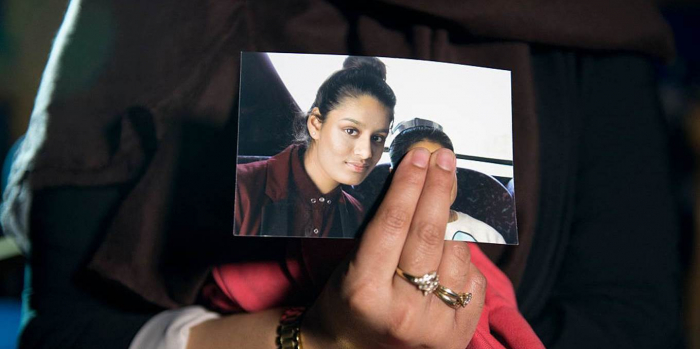Shamima Begum, a 19-year-old British woman who fled to Syria four years ago to marry an Islamic State (ISIS) fighter, wants to return home to the United Kingdom with her newborn son. Similarly, Hoda Muthana, a 24-year-old American woman who joined ISIS at age 20, has requested re-entry to the United States with her young child. Both have been rejected. But their cases continue to fuel heated debate about the rights of would-be returnees – and, more broadly, the compatibility between Muslims and the West.
In Begum’s case, the UK government has decided to revoke her citizenship, even though British law prohibits it if doing so renders a person stateless. The UK Home Office has apparently concluded that Begum’s mother’s Bangladeshi passport provides a sufficiently credible excuse to ignore this rule. Begum reportedly plans to appeal the decision.
As for Muthana, the US has argued that she was never really a citizen at all. Yes, she was born in New Jersey and received a US passport before fleeing to join ISIS. But the US State Department contends that her father was a Yemeni diplomat, and children born to active diplomats in the US do not receive birthright citizenship. Muthana, however, was born months after her father left his position, which has become the basis of a lawsuitfiled by her father against US President Donald Trump’s administration.
Like it or not, Begum and Muthana have a point. Their respective governments have failed to respect the rights of a citizen to a fair trial – meaning, in this case, criminal prosecution and an appropriate punishment under the law.
Many see no problem with that: these young women forfeited their rights when they chose to leave their home countries and join a group that regards those countries as the enemy. And political leaders, eager to score points with voters, are happy to endorse this view.
But, as the late Kofi Annan, a former secretary-general of the United Nations, often emphasized, such short-term, politically motivated thinking reflects a lack of vision and amounts ultimately to a failure of leadership. The long-term implications of abandoning responsibility for returnees from extremist groups are serious.
Young people who flee to join extremist groups are typically motivated by a sense of deep isolation and a desire for purpose. By excluding such people publicly and formally from our societies, we reinforce their sense of isolation and powerlessness – the opposite of what is needed to fight extremism and reduce the threat to their home countries.
Returnees have a right to due process. Denying them that right violates the fundamental rule-of-law principles on which democracies are built. That plays into the hands of fundamentalists and extremists, who accuse Western governments of preaching human rights and equality before the law only when it suits them. The best way to defend Western values is by upholding them.
Beyond their responsibility to their citizens, Western countries have a responsibility to the rest of the world. Many European countries – such as the UK, Germany, and France – have been major exporters of extremists to the Middle East. As much as we wish that these people – hundreds of whom have already returned – were not our problem, they are. Making them other countries’ problem is not a solution.
Rather than disregarding rights when it suits us – as the extremists do – the West must adopt a values-based approach to dealing with returnees. Such an approach would focus on creating structures and mechanisms for rehabilitating and reintegrating returnees from extremist groups in Syria and elsewhere. Here, countries like Denmark, Sweden, and Norway, with their dedicated reintegration facilities, strong support networks, and effective coordination among government agencies, provide an important model.
As with any new problem confronting our societies, the issue of returnees demands that we upgrade our institutions, or even create new ones, to ensure that we are equipped to handle the relevant challenges. De-radicalization and reintegration are not rocket science, but they do require strong political will and adequate resources.
Of course, the best-case scenario is to prevent radicalization in the first place. That is why in 2017, “Extremely Together,” a Kofi Annan Foundation initiative in which ten young people from around the world (including us) work to counter violent extremism, released the world’s first counter-extremism guide for young people by young people.
The return of violent extremists to Western countries is not an insurmountable problem. But forsaking our own principles would be.
Bjørn Ihler, an Extremely Together Young Leader at the Kofi Annan Foundation and co-founder of the Khalifa Ihler Institute, is an international counter extremism expert, technologist, and activist.
Fatima Zaman, an Extremely Together Young Leader at the Kofi Annan Foundation, pioneered a Countering Violent Extremism Roadshow in schools and universities across the United Kingdom .
Read the original article on project-syndicate.org.
More about: extremism
















































